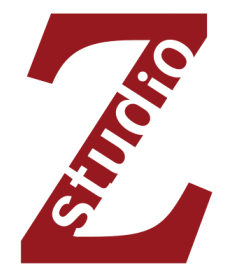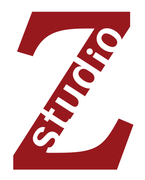Percussionist Scotty Horey will present modernist works by Schuyler Tsuda, James Dillon (with guest clarinetist Pat O’ Keefe), Yoshihisa Taira, and Vinko Globokar at Studio Z on Saturday, August 10, 7:30 p.m. Tickets and information here.
You have been influenced by many genres of music throughout your career. How did these lead you to your concentration on music from the modernist tradition?
I grew up listening to rock and roll and oldies with my dad, and classical music with my mother, so it’s no surprise that progressive rock became a home base for me (both as a musician, and as a listener). When I was in college, and now when I freelance professionally, I literally do everything, most notably popular music, jazz, classical music, contemporary percussion music, and later on modernist music. What I felt with modernism, especially solo pieces, was that there were so many “unanswered questions” about how to play and perform that inspired me to be creative and independent. Modernism was so expressive (intellectually, emotionally, and physically) in such a rich and complex way that, for me, explored different experiences that I could never have with either classical music or rock music. Furthermore, I have always enjoyed challenging myself. Memorizing a hyper complex score and trying to discern how to interpret and perform some of these pieces has REALLY tested my full potential as a human being: again, intellectually, emotionally, physically, and even spiritually. Sometimes it’s like diving deeper into speaking a new more complex language to people.
How did you decide to program these adventurous works for this concert at Studio Z?
The real practical reason behind following through with organizing this concert is to give a “home” to composer Schuyler Tsuda’s new work Weld Warp Shatter which he has written for me. Our work together has been based on a theme of exploration, abstract expression, and finding “alternatives” to performance traditions, and finding truth in this activity. I had the idea to create a whole program with this idea. Each of the pieces on the program touches on this theme, climaxing with ?Corporel (by Vinko Globokar), which is the ULTIMATE expression of an obsessive struggle to communicate something abstract that is inside us. Todesengel (by James Dillon) is also a favorite of mine, which like ?Corporel, has grown with me over the years.
Furthermore, on a personal note, by doing this concert I wanted to send a gesture to the Twin Cities community that I still represent this type of music even AFTER my school career (especially to those skeptics that believe this type of music ONLY exists in academia! Ha! I have proven you wrong!!!). I wanted to affirm to myself and to others how much I really believe in this music, and my desire to continue bringing it to wider audiences.
You'll be performing Todesengel by James Dillon, who teaches at the University of Minnesota. Were you able to consult with him in preparing this work? If so, did his involvement change your interpretation of the music?
Absolutely. I have worked with James on all of his solo percussion music (with the exception of “La Coupure” from Nine Rivers) for the past 5 years. He has become one my closest mentors, and a good friend. Very likely one of the reasons we have become so close (and perhaps why he feels I am such a perfect interpreter of his music) is that he sees a little bit of a young James Dillon in me. Someone who loves both rock music and classical music, the raw physical and emotional energy of live performance, but somehow hungers for a more detailed intense language of uncensored communication. Someone who takes various components of their unique life experience and combines them all together in their artistic output. One of the most poignant things I have learned from James is the value of personal reflection, patient practice, the discipline of processing details, and how when the moment comes, that can TRANSFORM outwardly to something even more powerful.Todesengel feels like it was almost written for me (although I was 11 years old when it was written!) for its complex rhythmic language, turbulent interaction with the clarinetist, and dramatically shifting emotions from second to second. In rehearsals, he was always encouraging me to dance with the rhythm more, exaggerate my gestures and dynamics, and listen carefully to articulation and clarity of the vibraphone.
In what ways do your eclectic interests beyond music influence your work as a musician?
I really feel that my relationship with yoga, meditation, and martial arts prompted my interest to pick up a pair of drumsticks for the first time when I was 16. My mother was into yoga and meditation, and my father was an athlete, coach, and fitness teacher. They both really understood the importance of the health/well being of the body, and the hidden power of the body and body-mind-spirit. Through martial arts I learned that I really loved moving my body in creative and disciplined ways with rhythm, and sitting down at a drumset seemed to be a nice next step. I still feel that my yoga and meditation practice helps my music practice be more centered, energetic, and focused. In fact, practicing some of these pieces takes a huge physical control and discipline that I feel I have developed through yoga and martial arts. Furthermore, I feel that yoga and martial arts have helped me learn and speak a language of visual expression with my body while I perform. Pretty much, just makes me a more open human being in EVERY way when I make music!
Anything else you would like to add?
Just that I sincerely hope ANYONE feels welcome to attend this concert and enjoy the music for themselves. I intend to share it with anyone who has a mind, body, and heart. No other requirements needed.


 RSS Feed
RSS Feed
